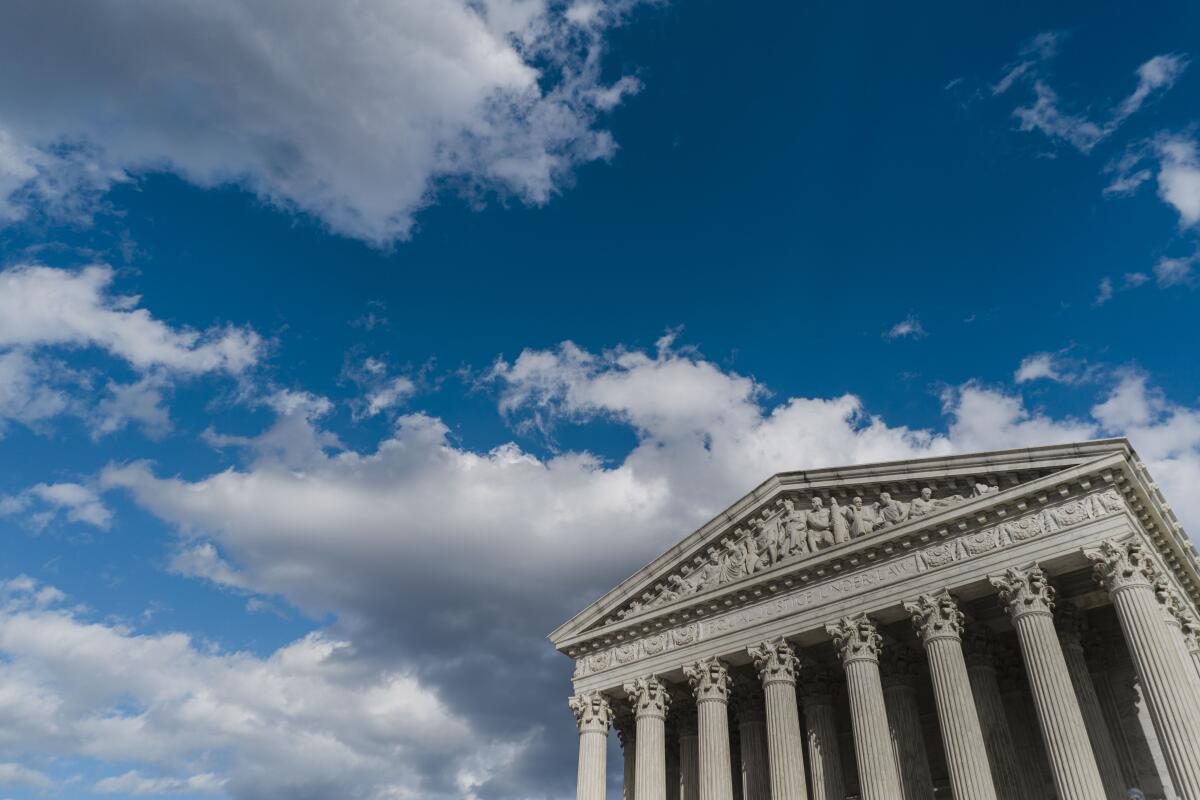Supreme Court shields Border Patrol agents from lawsuits over excessive force

- Share via
WASHINGTON — The Supreme Court last week shielded federal border patrol agents from being sued over allegations of unreasonable searches and the use of excessive force.
In a 6-3 decision, the court’s conservatives said that in nearly all instances federal agents may be not held liable for violating constitutional rights unless Congress has authorized such lawsuits for damages.
“Our cases have made clear that, in all but the most unusual circumstances, prescribing a cause of action is a job for Congress, not the courts,” Justice Clarence Thomas wrote in the majority opinion.
While the Constitution sets out the rights of individuals against the government — including protection “against unreasonable searches and seizures” — it does not say how those rights are to be enforced.
After the Civil War, Congress authorized lawsuits against state and local officials, including the police, who violate the rights of the people that are “secured by the Constitution.” But no such broad measure authorizes lawsuits against federal agents.
The case before the court arose from a bed-and-breakfast called the Smuggler’s Inn in Blaine, Wash. Part of the property abuts the U.S. border with Canada, and border patrol agents watched it constantly. They said they had seen people walk across the border to the inn.
In 2014, inn owner Robert Boule clashed with a border patrol agent, Erik Egbert, over a guest from Turkey who had raised suspicions. Boule, who said Egbert pushed him and gathered papers involving the guest, later sued the agent for violating the 4th Amendment, which forbids unreasonable searches and excessive use of force.
The 9th Circuit Court of Appeals allowed the suit to proceed, but the high court reversed that ruling in the case of Egbert vs. Boule. At issue was a precedent from 1971.
The high court then allowed a damages suit against federal drug agents in the case of Webster Bivens vs. Six Unknown Named Agents of Federal Bureau of Narcotics. The agents were accused of pushing their way into a New York apartment without a warrant and shackling a man in front of his family.
But in recent decades, the court has refused to extend so-called Bivens claims to cover other constitutional violations or federal agents.
Two years ago, the court by a 5-4 vote threw out a lawsuit against a border agent for a “cross-border shooting.” In that case, Hernandez vs. Mesa, an agent on the Texas side of the border shot and killed a 15-year old who was standing in Mexico.
In Wednesday’s opinion, Thomas said the job of border agents involves national security.
“We reaffirm that a Bivens cause of action may not lie where, as here, national security is at issue,” he wrote.
Chief Justice John G. Roberts Jr. and Justices Samuel A. Alito Jr., Brett M. Kavanaugh and Amy Coney Barrett agreed.
Justice Neil M. Gorsuch agreed with the outcome but said the court should go further to overturn Bivens and “return the power to create new causes of action to the people’s representatives in Congress.”
Justices Sonia Sotomayor, Stephen G. Breyer and Elena Kagan dissented.
The “decision does not overrule Bivens,” Sotomayor wrote. “It nevertheless contravenes precedent and will strip many more individuals who suffer injuries at the hands of other federal officers ... of an important remedy.”
Cecillia Wang, the ACLU’s deputy legal director, said that the “ruling leaves victims of police violence by Border Patrol agents without an effective remedy and endangers us all. U.S. Customs and Border Protection is by far the largest federal police agency, and it has an appalling record of injuring and killing people.”
More to Read
Get the L.A. Times Politics newsletter
Deeply reported insights into legislation, politics and policy from Sacramento, Washington and beyond. In your inbox three times per week.
You may occasionally receive promotional content from the Los Angeles Times.











